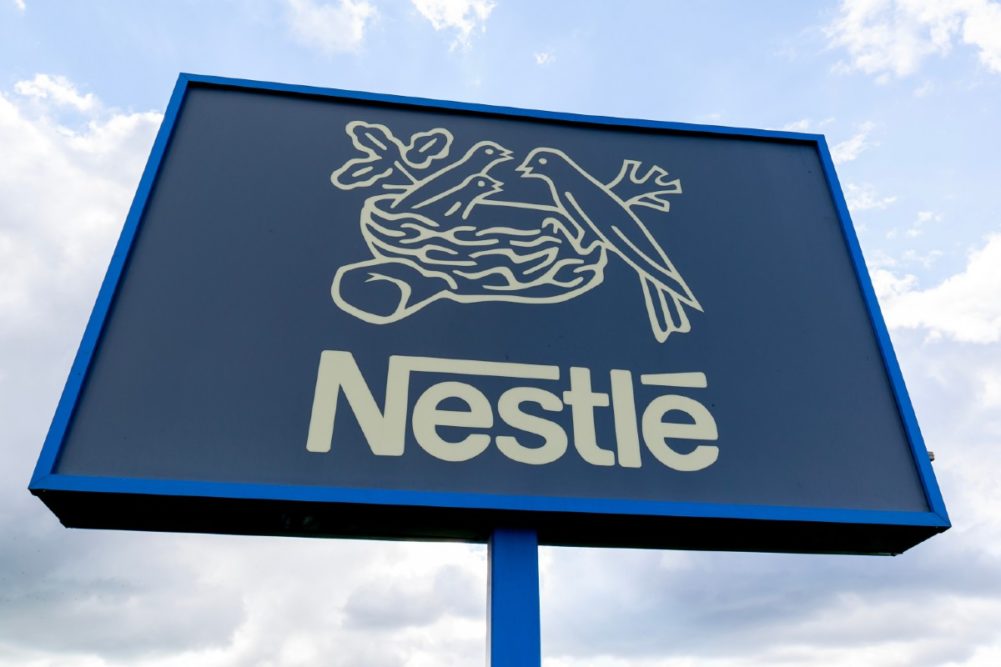LONDON — Nestle SA has extended its reign as the world’s most valuable food brand, securing the top spot in Brand Finance’s recently published “Food & Drink 2023” report.
Analyzing factors such as brand strength, revenue and royalty rates to determine brand value, Brand Finance’s annual report has consistently ranked the Switzerland-based company No. 1 since it was first published in 2015.
“As an iconic global brand, Nestle continues to raise the bar, setting new benchmarks for the industry and inspiring trust among consumers worldwide,” said Savio D’Souza, valuation director for Brand Finance. “With a rich heritage and a portfolio of trusted brands, Nestle has built a legacy of success and an unmatched global reputation.”
After Nestle, Brand Finance ranked Yili as the second most valuable food brand. The Chinese dairy producer has continuously held the position since it overtook Danone in 2020.
Nestle’s brand value increased 8% from $20.8 billion to $22.4 billion over the last year. Brand Finance attributed some of the uptick to strong sales growth across Nestle’s brand portfolio and promising plant-based product innovations, such as whole grain cookie dough from Toll House and new non-dairy milks. In September, the company further explored dairy alternatives through the development and testing of a novel product that was formulated with animal-free dairy protein from Perfect Day.
The report also cited the performance of Nestle’s coffee business, which saw high single-digit growth in organic sales during the first six months of fiscal 2023. Nestle expanded the unit, and its global coffee alliance with Starbucks, following the acquisition of Seattle’s Best Coffee in October. Brand Finance said the company’s Nespresso is the fastest growing non-alcoholic drink brand globally with a 208% value increase, now at $2.9 billion.
“Nestle’s ability to meet evolving consumer preferences, stay ahead of trends, and effectively launch new products has been a driving force behind its continued brand value growth,” Brand Finance said.
Some of the company’s success in identifying consumer preferences comes from its Project Tasty stock-keeping unit (SKU) rationalization program. Nestle began the initiative in 2021 to reduce its portfolio complexity and increase the availability of its high-performing SKUs amid pandemic-era supply chain issues. The program helped identify and eliminate underperformers in Nestle’s catalogue of 100,000 SKUs, of which nearly 33% were generating 1% of total sales and was subsequently expanded from evaluating individual product lines to entire brands and categories. Project Tasty’s broadened focus is expected to result in a positive impact for fiscal 2023, said Ulf Mark Schneider, chief executive officer of Nestle.
Yili’s value gains, rising 17% to $12.4 billion, were fueled by solid domestic sales and improved international revenue. The brand’s value also was aided by the opening of its Global Smart Manufacturing Industrial Park, in Hohhot, China. The facility incorporates some of the world’s most advanced and large-scale technology, according to the report.
“Yili has fostered strong customer loyalty in its local market by consistently delivering products of exceptional quality and perceived health benefits,” Brand Finance said. “Yili's focus on quality, innovation, and environmental responsibility has contributed to its world-leading reputation in the dairy industry.”
The snack category saw some of the largest growth among food brands, with the segment’s top five brands raising their value by an average of 40%. Four brands from Frito-Lay, a unit of Purchase, NY-based PepsiCo, Inc., were ranked in the upper echelon of snacking, including Lays (also the No. 3 most valuable food brand), Doritos, Cheetos and Tostitos. Want Want, a Chinese rice cracker brand, also was featured in the report’s top five most valuable snack brands.
Among non-alcoholic beverage brands, Coca-Cola Co., Atlanta, once again sits at No. 1. The brand’s value decreased 5% to $33.5 billion in 2023, but it retained its advantage over No. 2-ranked PepsiCo, which had an 11% decline.

